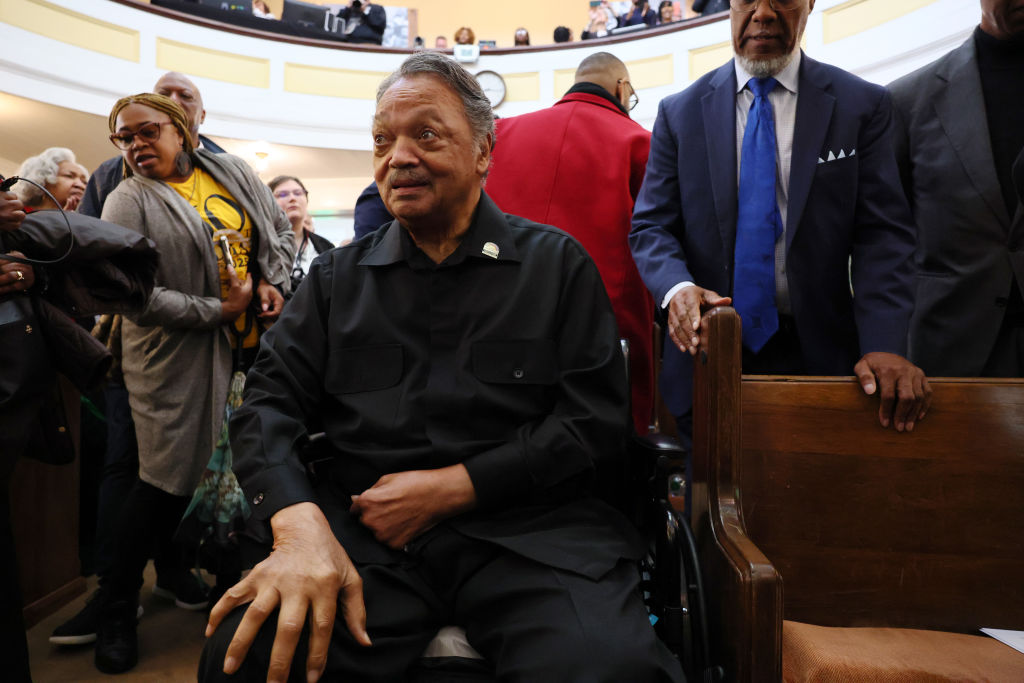The Enduring Legacy of Jesse Jackson: From Selma to the White House
Rev. Jesse Jackson’s life is a powerful testament to the enduring struggle for racial justice in America. His journey, from the segregated South to the national political stage, has profoundly shaped both Southern politics and the broader American landscape. This blog post explores the multifaceted impact of this influential figure.
A Southern Childhood Forged in the Fires of Segregation
Growing Up in Greenville
Jesse Louis Jackson’s early life in Greenville, South Carolina, during the Jim Crow era, indelibly shaped his worldview. Born in 1941, he experienced firsthand the brutal realities of segregation. Attending the all-Black Sterling High School, he excelled both academically and athletically, serving as class president and quarterback. This early experience of systemic inequality, as highlighted by his biographer David Masciotra, fueled his lifelong commitment to fighting oppression.

The Weight of Disparity
The pervasive racism of the time extended even to professional opportunities. Jackson rejected a professional baseball contract due to discriminatory pay practices, a pivotal decision that underscores his unwavering commitment to racial equality. His subsequent education at the University of Illinois and later North Carolina Agricultural and Technical State University further solidified his resolve.

From Greensboro to Chicago: A Civil Rights Activist Emerges
The Greensboro Movement
Jackson’s return to the South coincided with the height of the Civil Rights Movement. In Greensboro, North Carolina, he became a prominent leader, actively participating in protests to desegregate local businesses. His activism resulted in arrest during a student march, an event that mirrored Martin Luther King Jr.’s experience, leading him to write his own powerful “Letter From a Greensboro Jail.”

Operation Breadbasket: A Fight for Economic Justice
In 1964, Jackson moved to Chicago as part of the Great Migration. There, at Chicago Theological Seminary, he spearheaded Operation Breadbasket, a groundbreaking initiative focused on economic justice. This program strategically boycotted businesses that refused to hire Black workers, reflecting a philosophy of earthly good inspired by Dr. Sam Proctor. This approach, mirroring Dr. King’s advocacy, went beyond mere protest, aiming for tangible economic empowerment.

A Presidential Bid and Lasting Political Impact
Challenging the System
Jackson’s foray into national politics began with his presidential campaigns in 1984 and 1988. He was one of the first African Americans to seriously contend for the presidency, mobilizing disenfranchised voters and addressing critical moral and economic issues. His campaigns, while ultimately unsuccessful in securing the nomination, significantly impacted the Democratic primary system.

Reforming the Delegate System
Jackson’s advocacy for a proportional allocation of delegates in the Democratic primaries proved transformative. This crucial reform, implemented in 1992, significantly leveled the playing field, giving minority candidates a fairer chance at securing nominations. Figures like Barack Obama have openly acknowledged Jackson’s pioneering role in paving the way for future Black leaders.

The Southern Strategy and Jackson’s Enduring Legacy
Jackson’s political career coincided with the Republican Party’s “Southern Strategy,” which targeted racially conservative voters. While his unwavering focus on justice arguably contributed to the shift of some Southern whites toward the GOP, his legacy remains deeply rooted in the South. His journey demonstrates how a deeply regional identity can propel national influence, impacting policies and paving the way for future generations of activists and leaders. His impact on the fight for racial justice and political representation continues to resonate today.


